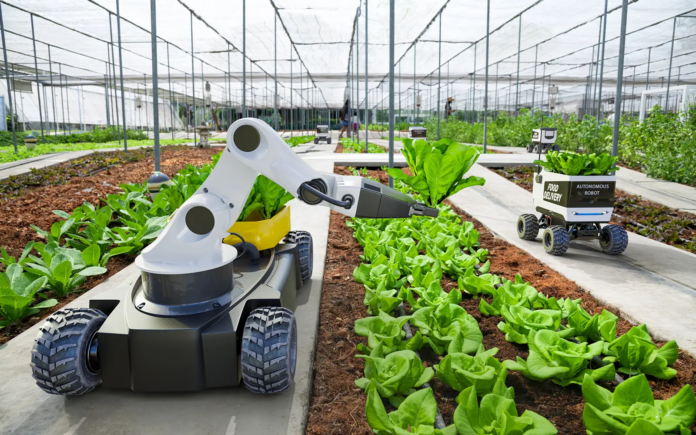A recent article by Moller, et al., (2024) titled “Unveiling the resilience of smallholder farmers in Senegal amidst extreme climate conditions” published in Food and Energy Security by Wiley, shows that Millet yield and income can be improved by adopting early planting dates, high plant densities, and moderate N fertilization levels.
“
Optimizing planting strategies, integrating livestock, and adopting improved varieties enhance resilience, nutrition, and income in Senegal’s agricultural systems– Moller et al., 2023
This study explores the economic and nutritional impacts of different agricultural interventions in Senegal, using two simulation models: FARMSIM and APSIM.
FARMSIM and APSIM are both software tools for modeling and simulating agricultural systems. FARMSIM is a platform for managing aquatic pests and their effects on water quality and fisheries. It allows users to create scenarios of pest invasion, control, and eradication, and evaluate the impacts on the ecosystem and the economy. It also provides a user-friendly interface and a library of pest models and data while APSIM is a model that simulates biophysical and economic processes in agricultural systems under climate risk and food security scenarios. It covers plant, soil, and management modules, and has various tools and interfaces for model construction, testing, and application. It is developed by a global consortium of researchers and used by various industries and organizations. This study aims to identify the most resilient and profitable millet and groundnut production systems under current and future drought scenarios as well as compare the economic feasibility and nutritional outcomes of different agricultural interventions, such as improved seeds, fertilizers, and irrigation, and assess the risk factors and preferences of farmers for adopting alternative technologies.
How the Study was Conducted
The authors employed a multi-criteria decision analysis (MCDA) approach to evaluate the effects of different planting dates, plant densities, and N fertilizer rates on yield, risk, nutrition, and economics of maize production in six districts of Nigeria.The authors employed secondary data from previous field experiments and literature to obtain the yield and N uptake values for different scenarios of planting date, plant density, and N fertilizer rate. The study employed mathematical models to estimate the risk, nutrition, and economics indicators based on the yield and N uptake data. The risk indicator was calculated using the coefficient of variation of yield, the nutrition indicator was calculated using the protein and lysine content of maize, and the economics indicator was calculated using the gross margin analysis. The authors employed the weighted sum method (WSM) to aggregate the four indicators (yield, risk, nutrition, and economics) into a single score for each scenario. The weights for the indicators were obtained from a stakeholder survey conducted in the six districts. The evaluation percentages were also employed to compare the performance of each scenario against a baseline scenario (early planting date, 1.1 plants per square meter, and 0 kg N per hectare) and against each other. The evaluation percentage was calculated as the percentage difference between the score of a scenario and the score of the baseline or another scenario.
What the Authors Found
The authors found that:
Millet yield and income can be improved by adopting early planting dates, high plant densities, and moderate N fertilization levels. Nutrition and food security can be enhanced by increasing crop diversity and integrating livestock into the farming system. Drought resilience can be achieved by optimizing planting dates and using drought-tolerant millet varieties. FARMSIM and APSIM are useful tools for simulating and evaluating different agricultural scenarios and interventions.
Why is this Important
This study is crucial for several reasons:
Agricultural Resilience: By identifying the most resilient and profitable millet and groundnut production systems, the study contributes to enhancing food security and livelihoods in Senegal. Understanding which interventions work best under drought scenarios is essential for sustainable agriculture.
Nutrition and Health: The focus on nutrition outcomes highlights the importance of diverse cropping systems. Improved crop diversity and integration of livestock can positively impact household nutrition and overall health.
Policy Implications: The findings provide evidence-based insights for policymakers. They can guide investments in agricultural research, extension services, and technology adoption to improve farmers’ well-being.
Climate Adaptation: Given the changing climate, optimizing planting dates and using drought-tolerant varieties are critical strategies. This study emphasizes the need for climate-smart agriculture.
What the Authors Recommend
- The authors suggest adopting improved millet varieties and fertilizer applications to increase millet yield and income, as well as reduce the risk of drought and food insecurity.
- The authors posit that integrating livestock production with crop cultivation enhances the nutritional status and resilience of farming households, as well as diversifies their income sources.
- In addition, the authors recommend promoting the use of APSIM and FARMSIM models to support decision-making and policy formulation for sustainable and resilient agricultural development in Senegal.
In conclusion, this study sheds light on the intricate dynamics of agricultural systems in Senegal, offering valuable insights into enhancing resilience, improving nutrition, and fostering sustainable development. Through the utilization of advanced simulation models like FARMSIM and APSIM, it becomes evident that optimizing planting strategies, embracing diverse cropping systems, and integrating livestock hold the key to mitigating risks, boosting yields, and ensuring food security in the face of climate change. By heeding the recommendations outlined herein and leveraging evidence-based approaches, policymakers and stakeholders can chart a course towards a more resilient, nourished, and prosperous agricultural future for Senegal and beyond.
















 The African Research (AR) Index is a comprehensive scholarly directory and database focused explicitly on journal publishers that publish and disseminate African research.
The African Research (AR) Index is a comprehensive scholarly directory and database focused explicitly on journal publishers that publish and disseminate African research.

